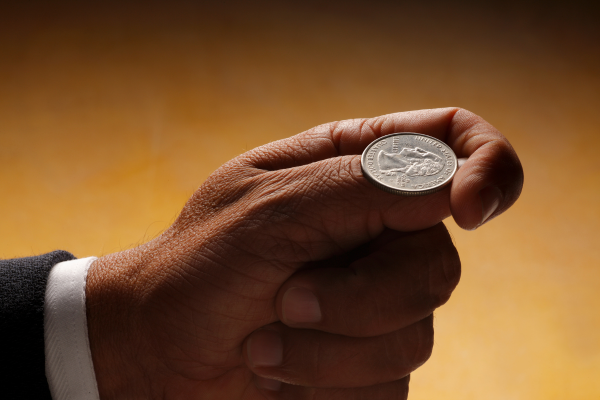
Over the past few days, the British Prime Minister, Rishi Sunak, has had to make a decision. Should he dismiss his Home Secretary, Suella Braverman, for straying outside her Government role? Or should he keep her in her post? Over several days, he was given “advice” from various politicians and commentators whether he should sack her or not. In the end, he decided he did “have confidence” in her.
Some people have noted that when we get a statement saying “Number 10 has confidence” it is a signal that in a few days the tables will turn. Some have said that you need a braver man than Sunak to take on “Cruella”, as she is nick-named because of her hard-line viewpoint. All we really know is that the Prime Minister took his time to decide. You might call this dithering. Equally, you might call it solid decision-making, assembling all the evidence and thinking things through analytically.
Perhaps there is something like VAR (Video Assistant Referee) in Whitehall. That is supposed to help football referees determine their decisions. There has been a massive row this week over the decisions taken with the help of VAR. There has even been a panel of “experts” reviewing footage all week to determine whether goals were legitimate. Soccer fans and Premier League managers are highly critical of the VAR system, saying it is “destroying the game” by delaying decisions, or even making the wrong ones.
Meanwhile, a study of Gen-Z workers, who are just at the start of their careers, says that there is a gap between what these individuals want and what the leaders of their companies believe they are providing. It turns out that the C-suite executives believe they are strong leaders with good decision-making. But most of the Gen-Z workers are not seeing those decision-making skills. The company leaders are confident they are nurturing the leaders of the future. The Gen-Z staff members of those firms say the opposite.
Decision-making is an essential component of good management and for running your own business. Your team members expect you to be decisive, otherwise they do not develop “followership”. Equally, if you run a business, your customers expect rapid decisions, otherwise they are off to the competition.
If you speak to any of my colleagues at work, they’ll tell you I get very annoyed when “the powers-that-be” put off decisions. Like many leaders who do this, they are seeking further information, or clarification of particular issues. When a lot is at stake, it is human nature to do this to ensure that nothing bad happens when a decision is made. The problem for those observing this, is that it seems like dithering and indecisiveness.
Professor Ellen Langer, a psychologist from Harvard, could provide my superiors, football referees, and the Prime Minister, with a better way of making decisions. In her latest book, The Mindful Body, Professor Langer says that decision-making affects our physical health. She explains that making decisions can be stressful, and that leads to effects on our body. As a result, we avoid making decisions. It turns out that dithering is a defence mechanism to protect ourselves.
Professor Langer’s research has shown that decisions made on an analytical basis are actually no better than those made with little thought. In one study, where people were forced to make instant decisions, stress levels were considerably lower than when people considered all the details. And taking decisions under stress is more difficult than when you are relaxed. Hence, pondering over the details in order to make a decision makes it less likely that you can actually make that decision.
One point that Professor Langer makes is that there is no such thing as a right decision. Ultimately, she points out, decisions are just a preference stated at a moment in time. However, humans are programmed to seek the maximum amount of information available to them to make such preferences. This is essentially a survival instinct to ensure that we are not under threat.
The psychologist Professor Barry Schwartz from the University of California, Berkeley, coined the notion of the “Paradox of Choice”. These days we are surrounded by so much information we are finding it increasingly difficult to make a choice. We cannot decide either way because of the “paralysis of analysis”.
The science of decision-making is complex. There is a whole host of theories, such as “conjunctive decision making”, “lexicographic decisions” and “non-compensatory decisions”. No, I’m not going to go into the details. But these theories and models exist because we need something to explain our over-complicated way of making decision. As Professor Langer points out, much decision-making is overthinking. It turns out that you can make really good decisions if you do so quickly. The indecisiveness observed by Gen-Z employees is probably because of the time-delay of business decisions, as execs want to gather more information to make the “right” decision. Ultimately, the right decision is just a decision – any decision. After all, if you make what turns out to be the wrong decision, you can always change your mind in the future.
